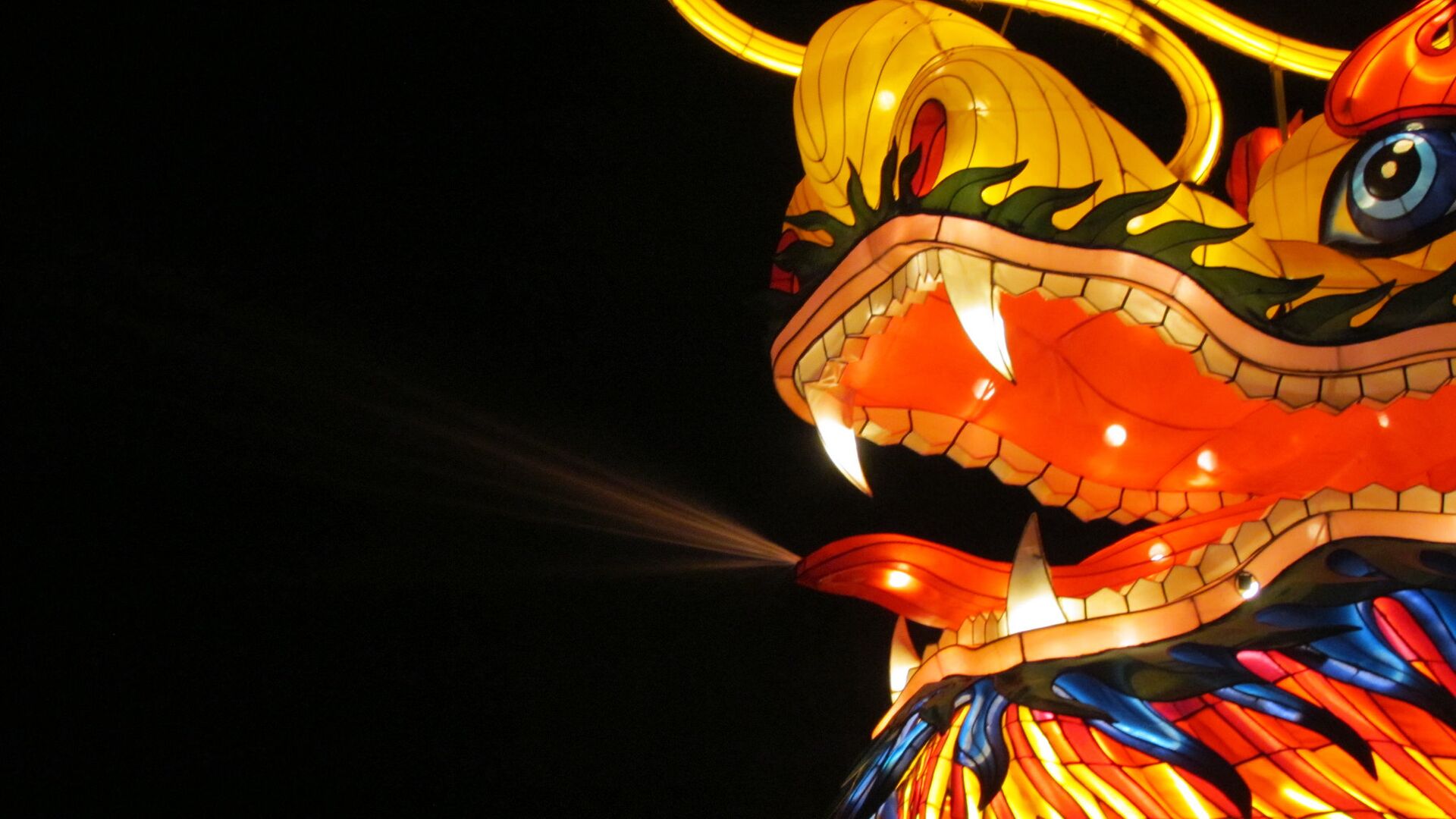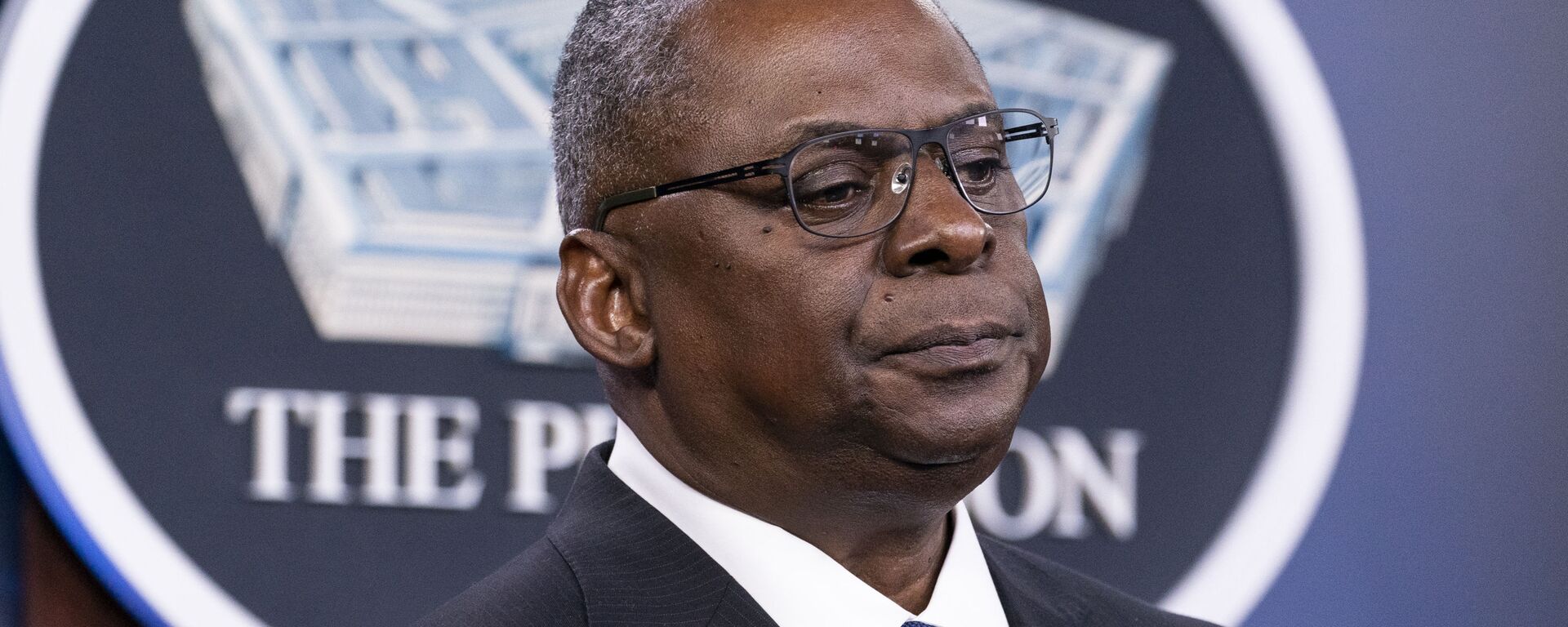https://sputnikglobe.com/20221111/us-continues-to-provoke-chinese-dragon-over-taiwan-but-admits-conflict-would-cause-global-meltdown-1104023640.html
US Continues to Provoke Chinese Dragon Over Taiwan, But Admits Conflict Would Cause Global Meltdown
US Continues to Provoke Chinese Dragon Over Taiwan, But Admits Conflict Would Cause Global Meltdown
Sputnik International
Joe Biden has managed to sink US relations with China to lows unmatched even by Donald Trump and his multi-trillion dollar trade war against Beijing. Biden has... 11.11.2022, Sputnik International
2022-11-11T14:04+0000
2022-11-11T14:04+0000
2023-06-19T12:45+0000
us-china tensions over taiwan
us
global economy
economy
europe
taiwan
https://cdn1.img.sputnikglobe.com/img/106548/66/1065486612_0:0:2048:1152_1920x0_80_0_0_f65d7aceaaa696770d0fa5ee090b7028.jpg
The US State Department has reportedly shared with its allies and partners the details of a confidential report on the economic fallout that would be caused by a conflict over Taiwan, warning that a blockade of the island by the People’s Republic of China would cause $2.5 trillion in economic damage.Officials familiar with the report, commissioned by Rhodium Group, a New York-based think tank with ties to the Council on Foreign Relations, told British media that Washington and its allies are holding discussions on ‘contingency plans’ in case of an escalation in Taiwan.Western officials hope that informing the international community about the consequences of a Taiwan crisis might ‘rally international support’ to ‘deter China,’ with Washington reportedly using the conflict in Ukraine as an example.The Rhodium Group report details economic consequences that would be suffered by the island itself, and industries and supply chains ranging from semiconductors for vehicles to computers, cellphones and servers which would be hit hard globally. It also warns that foreign investment in Chinese companies would disappear the moment a crisis begins, and of ‘severe’ repercussions to global trade – including emerging economies lifting themselves up out of poverty through trade with China.Taiwanese factories churn out nearly 90 percent of the advanced microchips used in electronics, and about 65 percent of all semiconductors produced globally. The People’s Republic produces about 15 percent of the world’s semiconductors, and has taken steps to ramp up research and production on the mainland. However, notwithstanding the political tensions between Beijing, Taipei and its patron, the United States, trade between the mainland and Taiwan has boomed for decades, reaching $312.4 billion in 2021.US Wants to Have Its Cake and Eat It TooThe fearmongering report comes as tensions between China and the US over Taiwan continue to escalate, with the storm clouds of a possible military clash gathering over the island as Washington continues to ramp up its claims that Beijing may be preparing to reunify with the island by force. Chinese officials including President Xi Jinping have repeatedly denied claims to that effect.Last month, US Navy chief of operations Michael Gilday claimed China might “invade” the island before the end of the year, or some time in 2023, and urged the US military to prepare for such an eventuality. “I don’t mean at all to be alarmist by saying that. It’s just that we can’t wish that away,” Gilday said.On Wednesday, US Joint Chiefs Chairman Mark Milley warned that the Pentagon would “support” Taiwan “militarily” and “try to help train them and equip them” in the event of a PRC invasion.What Happened to ‘Strategic Ambiguity’ and ‘One China’?Officially, the US’s stance on Taiwan has long been one of “strategic ambiguity” – with the US rejecting making any official pledges to defend the island. However, a stream of statements by President Biden over the past year-and-a-half promising to put boots on the ground to defend the island has undermined the long-held policy, notwithstanding Washington officials’ cat-and-mouse game of “correcting” the president every time he opens his mouth on the matter.Washington’s ‘strategic ambiguity’ policy was a key element of America’s push to improve relations with Taiwan in the 1970s and 1980s, and went hand in glove with the US recognition of the ‘One China Policy’ – i.e. that there is only one nation in the world with the right to call itself China – the People’s Republic. This required the US to formally scrap diplomatic relations with Taiwan – which calls itself the ‘Republic of China’, and replace official ties with informal contacts via the American Institute in Taipei and the Taipei Economic and Cultural Representative Office in Washington.Senior US officials and lawmakers have made a major push to undermine the ‘One China Policy’ this year through wave after wave of visits to the island, starting with House Speaker Nancy Pelosi’s trip to Taipei in August. Pelosi’s visit has been followed up by similar visits from governors, senators, congresspeople, and even a commissioner of the Federal Communications Commission for some reason.Slamming these trips as a provocation that undermines the foundations on which China-US relations are built, Beijing has responded by launching a series of military drills around the island and, in a move rarely used by the PRC, by slapping sanctions on Pelosi, her colleagues, and US arms makers shipping weapons to Taipei.China Still Wants Peaceful Reunification, But…In his address to at the 20th Congress of the Chinese Communist Party in October, President Xi Jinping emphasized that Beijing remains committed to peaceful reunification between the mainland and the island.“The policies of peaceful reunification and [the] One Country, Two Systems [model] are the best way to realize unification across the Taiwan Strait; this best serves the interests of Chinese people on both sides of the Strait and the entire Chinese nation,” Xi said.The Chinese leader vowed that Beijing would continue to adhere to the 1992 Consensus agreement between Chinese and Taiwanese officials, which created the basis for semi-official cross-strait dialogue and negotiations on reunification.At the same time, Xi warned that “Taiwan is China’s Taiwan,” and that “resolving the Taiwan question is a matter for the Chinese, a matter that must be resolved by the Chinese.”
https://sputnikglobe.com/20221109/how-taiwans-outsized-clout-in-semiconductor-manufacturing-is-weaponized-by-biden-admin-1103942071.html
https://sputnikglobe.com/20221007/report-us-contingency-plan-for-chinese-invasion-of-taiwan-includes-airlifting-out-chip-engineers-1101619578.html
https://sputnikglobe.com/20220523/austin-swats-down-bidens-taiwan-defense-claims-says-us-policy-has-not-changed-1095725435.html
https://sputnikglobe.com/20221110/top-pentagon-officer-says-us-will-train-and-equip-taiwan-as-xi-recalculating-potential-conflict-1103992744.html
https://sputnikglobe.com/20221111/chinas-president-to-meet-with-us-french-presidents-at-g20-summit-foreign-ministry-1104006896.html
taiwan
Sputnik International
feedback@sputniknews.com
+74956456601
MIA „Rossiya Segodnya“
2022
News
en_EN
Sputnik International
feedback@sputniknews.com
+74956456601
MIA „Rossiya Segodnya“
Sputnik International
feedback@sputniknews.com
+74956456601
MIA „Rossiya Segodnya“
taiwan, us, global economies, conflict, crisis, war danger
taiwan, us, global economies, conflict, crisis, war danger
US Continues to Provoke Chinese Dragon Over Taiwan, But Admits Conflict Would Cause Global Meltdown
14:04 GMT 11.11.2022 (Updated: 12:45 GMT 19.06.2023) Joe Biden has managed to sink US relations with China to lows unmatched even by Donald Trump and his multi-trillion dollar trade war against Beijing. Biden has ruffled China’s feathers by pledging to “defend” Taiwan against “Chinese aggression,” with US officials kicking off a series of trips to the island in violation of the One China Policy.
The US State Department has reportedly shared with its allies and partners the details of a confidential report on the economic fallout that would be caused by a conflict over Taiwan, warning that a blockade of the island by the People’s Republic of China would cause $2.5 trillion in economic damage.
Officials familiar with the report, commissioned by Rhodium Group, a New York-based think tank with ties to the Council on Foreign Relations,
told British media that Washington and its allies are holding discussions on ‘contingency plans’ in case of an escalation in Taiwan.
Western officials hope that informing the international community about the consequences of a Taiwan crisis might ‘rally international support’ to ‘deter China,’ with Washington reportedly using the conflict in Ukraine as an example.
The Rhodium Group report details economic consequences that would be suffered by the island itself, and industries and supply chains ranging from semiconductors for vehicles to computers, cellphones and servers which would be hit hard globally. It also warns that foreign investment in Chinese companies would disappear the moment a crisis begins, and of ‘severe’ repercussions to global trade – including emerging economies lifting themselves up out of poverty through trade with China.
Taiwanese factories churn out nearly 90 percent of the advanced microchips used in electronics, and about 65 percent of all semiconductors produced globally. The People’s Republic produces about 15 percent of the world’s semiconductors, and has taken steps to ramp up research and production on the mainland. However, notwithstanding the political tensions between Beijing, Taipei and its patron, the United States, trade between the mainland and Taiwan has boomed for decades, reaching $312.4 billion in 2021.

9 November 2022, 16:26 GMT
US Wants to Have Its Cake and Eat It Too
The fearmongering report comes as tensions between China and the US over Taiwan continue to escalate, with the storm clouds of a possible military clash gathering over the island as Washington continues to ramp up its claims that Beijing may be preparing to reunify with the island by force. Chinese officials including President Xi Jinping have repeatedly denied claims to that effect.
Last month, US Navy chief of operations Michael Gilday claimed China might “invade” the island before the end of the year, or some time in 2023, and urged the US military to prepare for such an eventuality. “I don’t mean at all to be alarmist by saying that. It’s just that we can’t wish that away,” Gilday
said.
On Wednesday, US Joint Chiefs Chairman Mark Milley
warned that the Pentagon would “support” Taiwan “militarily” and “try to help train them and equip them” in the event of a PRC invasion.
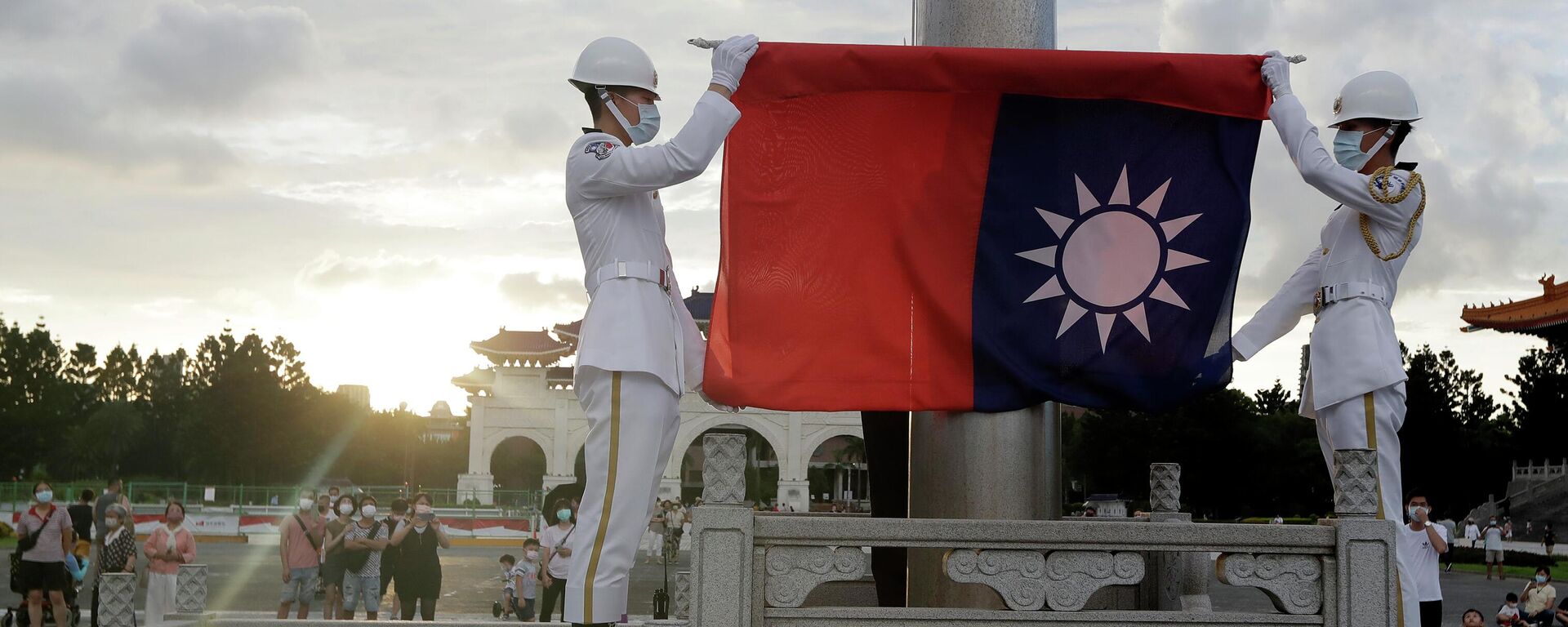
7 October 2022, 18:26 GMT
What Happened to ‘Strategic Ambiguity’ and ‘One China’?
Officially, the US’s stance on Taiwan has long been one of “strategic ambiguity” – with the US rejecting making any official pledges to defend the island. However, a stream of statements by President Biden over the past year-and-a-half promising to put boots on the ground to defend the island has undermined the long-held policy, notwithstanding Washington officials’ cat-and-mouse game of
“correcting” the president every time he opens his mouth on the matter.
Washington’s ‘strategic ambiguity’ policy was a key element of America’s push to improve relations with Taiwan in the 1970s and 1980s, and went hand in glove with the US recognition of the ‘One China Policy’ – i.e. that there is only one nation in the world with the right to call itself China – the People’s Republic. This required the US to formally scrap diplomatic relations with Taiwan – which calls itself the ‘Republic of China’, and replace official ties with informal contacts via the American Institute in Taipei and the Taipei Economic and Cultural Representative Office in Washington.
Senior US officials and lawmakers have made a major push to undermine the ‘One China Policy’ this year through wave after wave of visits to the island, starting with House Speaker Nancy Pelosi’s trip to Taipei in August. Pelosi’s visit has been followed up by similar visits from governors, senators, congresspeople, and even a commissioner of the Federal Communications Commission for some reason. Slamming these trips as a provocation that undermines the foundations on which China-US relations are built, Beijing has responded by launching a series of military drills around the island and, in a move rarely used by the PRC, by
slapping sanctions on Pelosi, her colleagues, and US arms makers shipping weapons to Taipei.
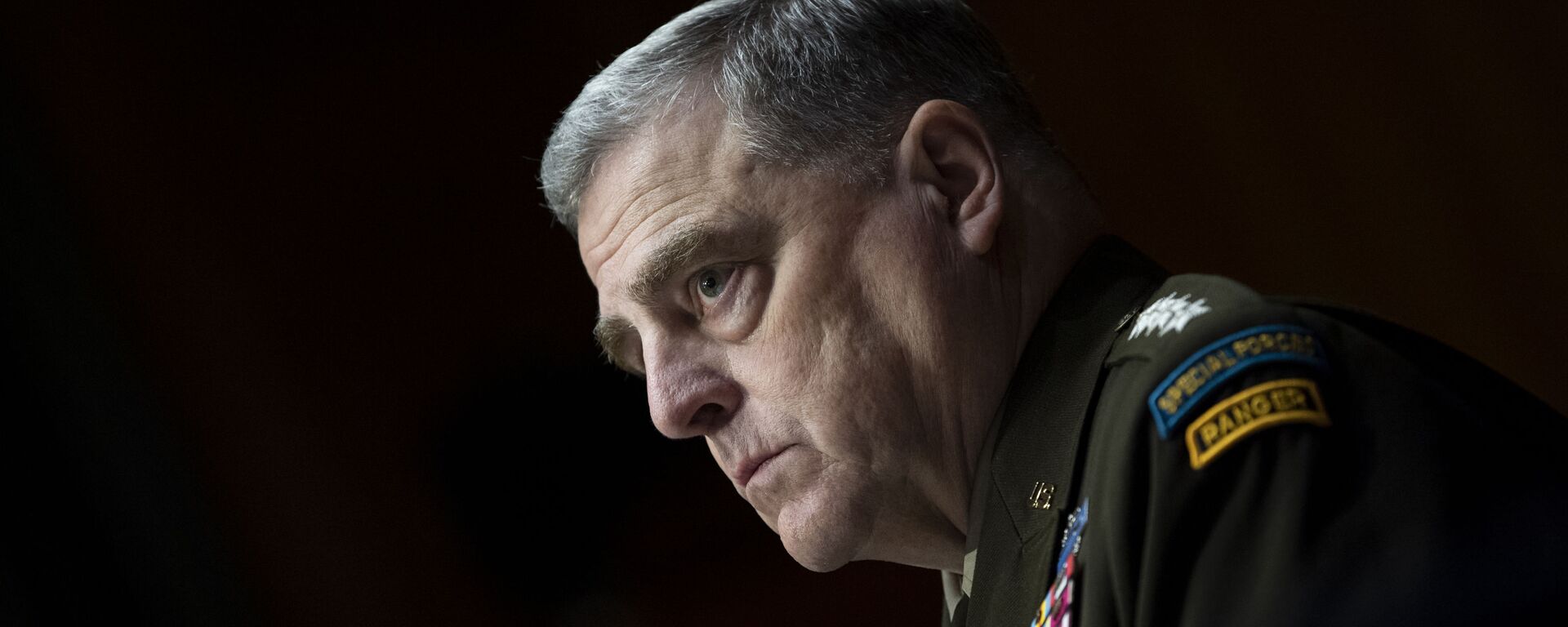
10 November 2022, 17:18 GMT
China Still Wants Peaceful Reunification, But…
In his
address to at the 20th Congress of the Chinese Communist Party in October, President Xi Jinping emphasized that Beijing remains committed to peaceful reunification between the mainland and the island.
“The policies of peaceful reunification and [the] One Country, Two Systems [model] are the best way to realize unification across the Taiwan Strait; this best serves the interests of Chinese people on both sides of the Strait and the entire Chinese nation,” Xi said.
The Chinese leader vowed that Beijing would continue to adhere to the 1992 Consensus agreement between Chinese and Taiwanese officials, which created the basis for semi-official cross-strait dialogue and negotiations on reunification.
At the same time, Xi warned that “Taiwan is China’s Taiwan,” and that “resolving the Taiwan question is a matter for the Chinese, a matter that must be resolved by the Chinese.”
“We will continue to strive for peaceful reunification with the greatest sincerity and the utmost effort, but we will never compromise to renounce the use of force, and we reserve the option of taking all measures necessary. This is directed solely at interference by outside forces and the few separatists seeking ‘Taiwan independence’ and their separatist activities; it is by no means targeted at our Taiwan compatriots,” Xi said.
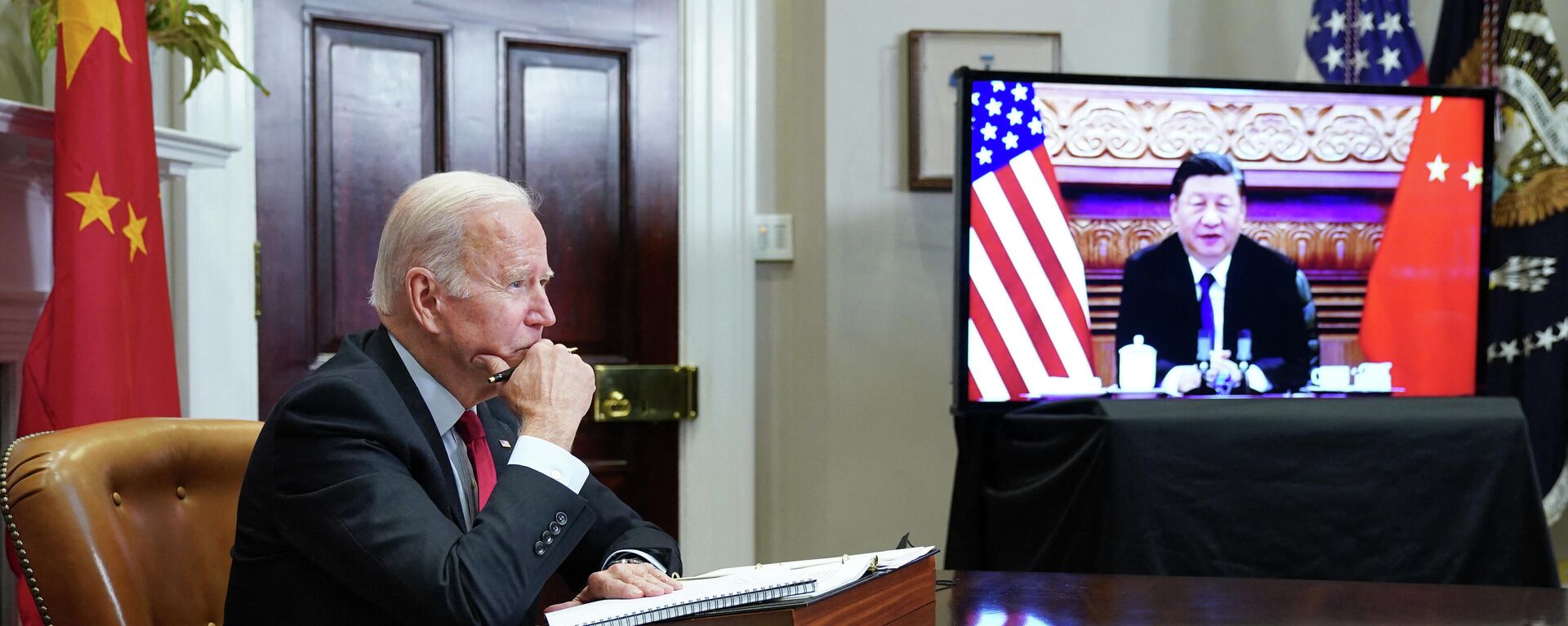
11 November 2022, 08:24 GMT


